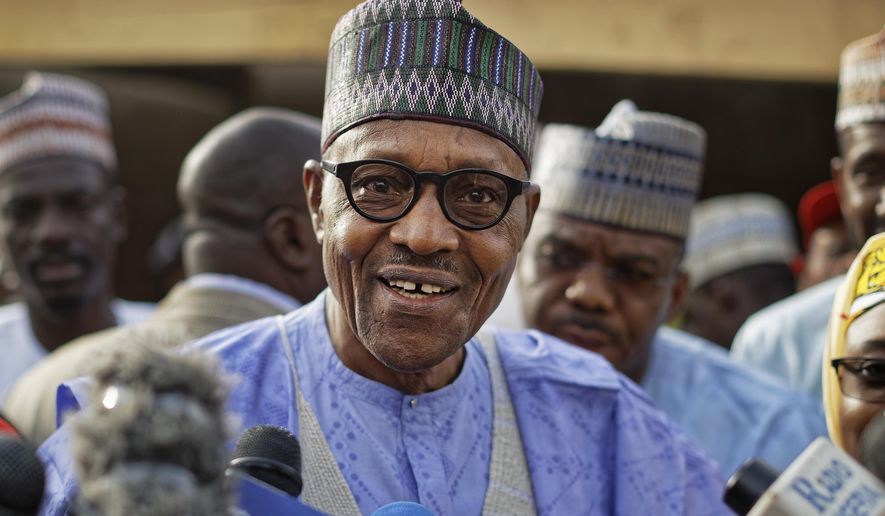ABUJA, Nigeria (AP) - Nigerian President Muhammadu Buhari began his second term as head of Africa’s most populous nation on Wednesday, facing heightened pressure to defeat Islamic extremism and boost the oil-dependent economy amid concerns over his health.
The 76-year-old former military dictator read the oath of office from a card as he stood beside his wife, wearing a traditional white robe and sunglasses. He did not make a speech.
Governors also were sworn in across the West African nation of nearly 190 million people, though the ceremony was canceled in Buhari’s home state of Katsina in the north because of security concerns.
Buhari won the February election despite serious questions about his health, having spent more than 150 days outside the country for unspecified medical treatment during his first term.
Along with a 25% unemployment rate and widespread poverty , Nigeria continues to confront a multitude of security threats that loom over Buhari’s second term. A new extremist faction pledging allegiance to the Islamic State group has made a deadly resurgence in recent months, overrunning military bases in the northeast and raising questions about how much support Nigeria’s troops receive from the government.
The decade-old Boko Haram insurgency also remains a threat . Bandits threaten the northwest, while oil militants remain active in Nigeria’s oil-rich south.
Deadly clashes between largely Christian farmers and largely Muslim herders over increasingly scarce land also have wracked central Nigeria. Buhari has faced particularly sharp criticism over the crisis, as many Nigerians worry that he sympathizes with the herders as a fellow ethnic Fulani from the north.
Buhari also faces rising discontent over the poor economic prospects for most Nigerians, said political analyst Dan Ekere, a lecturer at the University of Lagos.
“There are also challenges with infrastructure, especially power. As we speak, we are still paying for darkness,” he said of a county where the rumble of generators is part of the daily soundtrack. “How do you grow the economy without power supply? There is nothing to show that we are moving away from the state we are in.”
___
Olukoya reported from Lagos, Nigeria. Associated Press writer Cara Anna in Johannesburg contributed.




Please read our comment policy before commenting.